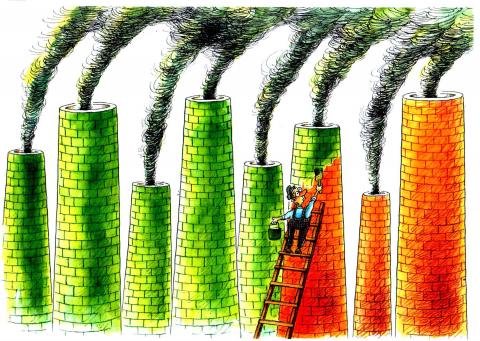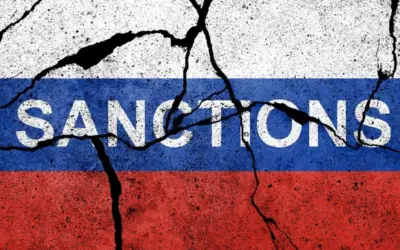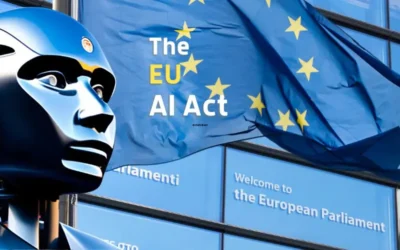1. Introduction
In my experience, there are quite a few legal and regulatory terms that most people have come across – but unless you’ve dealt with them directly, it’s not always clear what they actually mean. Greenwashing – especially in light of evolving EU greenwashing rules – is a classic example. Whether you’re in Legal, Compliance, Marketing or Management, chances are you’ll encounter it sooner or later – and it helps to know what you’re dealing with.
That’s why I’ve written this article: To explain what greenwashing is, why it exists in the first place and has become so widespread, how EU law already deals with it, and what new rules will apply from 27 September 2026.
2. What is greenwashing, and why does it matter?
Greenwashing is the practice of presenting products, services or business operations as more environmentally friendly than they really are. It often involves vague or exaggerated claims – think “eco-friendly”, “green”, “CO₂ neutral” – which may sound good but don’t always hold up under scrutiny.
Why do businesses make these claims? Partly because they resonate. Sustainability is no longer optional: Under EU law, companies are increasingly required to report on their environmental and social impact (known as ESG – see my earlier articles here and here). At the same time, market pressure from consumers, investors and regulators has made it more important than ever to be seen as green.
The result is a growing volume of sustainability marketing – not all of it accurate. Research shows that products making environmental claims tend to sell better. But where the claims are vague, unsubstantiated or simply untrue, this creates a problem. Misleading green claims can distort consumer behaviour, create unfair competition, and undermine trust in genuinely sustainable businesses.
That’s why greenwashing is no longer just a reputational issue. It’s a growing legal risk – and one the EU is actively addressing with stricter enforcement and EU greenwashing rules.
3. Existing EU law already prohibits misleading green claims
Greenwashing is already covered by existing EU consumer protection law. Many misleading environmental claims fall within the scope of the Unfair Commercial Practices Directive (Directive 2005/29/EC) (“UCPD“), which prohibits commercial practices that are unfair, misleading, or likely to distort consumers’ economic behaviour.
Examples of greenwashing practices that may already violate the UCPD include:
- Using vague or general terms like “eco-friendly”, “green” or “CO₂ neutral” without substantiating these claims with clear, verifiable evidence (cf. Article 6 – Misleading actions);
- emphasising certain environmental aspects while omitting material information that consumers would reasonably need to make an informed decision (cf. Article 7 – Misleading omissions); and
- making technically accurate claims that are nonetheless presented in a misleading way — for instance, by highlighting a minor benefit while ignoring the product’s broader environmental impact (cf. Article 6 – Misleading actions).
National authorities have already taken enforcement action under these rules. For example, the Dutch Authority for Consumers and Markets (ACM) has issued specific guidance on sustainability claims and taken enforcement action against misleading green marketing, including public warnings and investigations into sectors such as the energy sector.
However, enforcement across the EU has not been uniform. Many borderline green marketing tactics operate in a legal grey zone, which creates uncertainty for businesses and reduces consumer protection.
4. What’s changing: New EU rules specifically targeting greenwashing
Directive (EU) 2024/825 on Empowering Consumers for the Green Transition (“Directive (EU) 2024/825”) seeks to close the gaps in enforcement and to eliminate legal grey areas. Having entered into force on 26 March 2024, it amends the UPCD and the Consumer Rights Directive (Directive 2011/83/EU) and introduces a blacklist of explicitly prohibited greenwashing practices.
These blacklisted practices are considered unfair per se – meaning that national enforcement authorities do not need to prove that the consumer was actually misled or harmed. The mere use of these tactics is enough to constitute a violation. The following practices will be banned once the Directive takes effect:
- Using sustainability labels that are not based on approved certification schemes or issued by public authorities;
- making generic environmental claims (such as “green”, “climate-friendly” or “eco”) without clear, recognised environmental performance to back them up;
- claiming that a product is CO₂-neutral based solely on carbon offsetting, without evidence of real emissions reductions; and
- marketing software updates as necessary when they merely add new features, not functionality improvements;
Directive (EU) 2024/825 also strengthens existing rules on misleading practices, including:
- Advertising irrelevant ‘green’ features, such as labelling bottled water as gluten-free;
- making unverifiable future-oriented claims about environmental performance without concrete, publicly available targets and a realistic implementation plan; and
- failing to inform consumers about key environmental aspects, such as the product’s reparability or recyclability.
EU Member States must transpose the Directive into national law by 27 March 2026, and the new rules will apply from 27 September 2026.
Non-compliance may lead to investigations, regulatory enforcement, reputational damage, and, where applicable, fines or other penalties under national (consumer) law.
5. What businesses need to watch for under the EU greenwashing rules
Although enforcement will lie with national authorities, Directive (EU) 2024/825 provides a much clearer and more uniform framework for assessing environmental claims across the EU. Once the new rules apply (from 27 September 2026), companies will face:
- Greater legal certainty around what constitutes misleading green marketing;
- increased enforcement risks, as national authorities gain stronger tools; and
- higher litigation exposure in both consumer and reputational terms.
Businesses making environmental claims – whether in advertising, packaging, websites, investor materials or elsewhere – should already begin reviewing their practices in light of the upcoming rules. This includes:
- Avoiding vague or generalised claims unless they can be backed by verifiable data;
- substantiating all green claims with recognised, documented environmental performance;
- being cautious with carbon neutrality claims based on offsetting alone; and
- ensuring future-oriented claims are tied to measurable, realistic plans.
Finally, while Directive (EU) 2024/825 already marks a significant step forward, it may not be the last. The EU is also considering a separate Green Claims Directive, which would go further by introducing more detailed rules – including potential pre-approval requirements for environmental claims. While the legislative process is still ongoing (the Green Claims Directive proposal was published on 22 March 2023), the direction is clear: green marketing is becoming a(n increasingly) regulated space.
6. Conclusion
Greenwashing may have started as a marketing tactic – but under evolving EU (and national) law, it’s fast becoming a serious compliance risk.
With new EU greenwashing rules in place and national enforcement due to begin on 27 September 2026, businesses should carefully rethink how they communicate about sustainability. This means not only avoiding false or misleading claims, but also being able to substantiate any green claim with clear, verifiable evidence.
Green may still sell – but greenwashing will no longer fly.
Thoughts, comments or questions? Get in touch!
Gundo Haacke, Interim Legal Counsel & Owner of Haacke Commercial Legal Services.
Blog article published on 17 June 2025.
Image credit: World wide web (no source found).
Disclaimer
The information provided in this blog article is for general informational purposes only. Nothing contained in this blog article constitutes legal advice, nor is it intended to be a substitute for legal counsel on any subject matter. The author disclaims any liability in connection with the use of this information.



